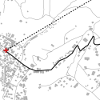Maximizing the value of a volunteer: A novel method for prioritizing humanitarian VGI activities
DOI:
https://doi.org/10.5311/JOSIS.2023.27.246Keywords:
volunteered geographic information, crisis mapping, OpenStreetMap, humanitarianAbstract
As a consequence of their reliance on a scarce volunteer resource, humanitarian mapping organizations must prioritize their mapping activities. For mapping in anticipation of a crisis or mapping in support of long-term crises, the only method available to organizations is an estimation of the "completeness" of the map, with organizations directing volunteers to map areas where data are missing. Whilst this method is suitable for organizations that focus on general map improvement, for those who create data for a specific reason (e.g., drinking water provision) the method is sub-optimal. In this article, we present a new method of humanitarian mapping prioritization, that considers the purpose of map data collection. The method identifies locations where contributions by volunteers are expected to have the biggest impact on the desired use of the map data and therefore maximizes the value gained from volunteer contributions. We explain our method using the example of measuring distance to healthcare and demonstrate its superior ability to consider the context of map data over generic estimations of map "completeness". Our method provides humanitarian mapping organizations with an easily reproducible and low cost method and an opportunity to make better informed decisions about mapping prioritization, when the purpose of map data collection is known. Using our method, organizations will be able to maximize the value gained from a scarce volunteer resource and increase the efficiency of humanitarian map data production.

Downloads
Published
Issue
Section
License
Copyright (c) 2023 Kirsty Watkinson, Jonathan Huck, Angela Harris

This work is licensed under a Creative Commons Attribution 3.0 Unported License.
Articles in JOSIS are licensed under a Creative Commons Attribution 3.0 License.
